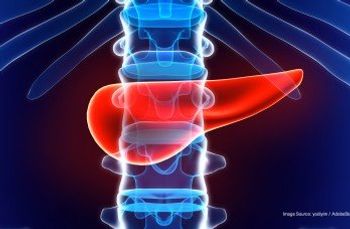
Metformin May Not Improve Pancreatic Cancer Survival
Metformin, a common drug for type II diabetes, did not improve the survival of patients with pancreatic ductal adenocarcinoma.
Metformin, a common drug for type II diabetes, did not improve the survival of patients with pancreatic ductal adenocarcinoma, according to the results of retrospective cohort study presented at the 2015 American Association for Cancer Research (AACR) Annual Meeting, held April 18–22, in Philadelphia.
The median survival of patients who did not take metformin was 308 days compared with 292 days for patients treated with any metformin prior to their cancer diagnosis, a non-significant difference.
Prior epidemiologic studies have suggested that metformin may reduce the risk of death from cancer. Metformin, an oral, biguanide class agent, suppresses glucose production in the liver. But, the data for pancreatic cancer is not consistent and retrospective studies of cancer survival may have unintended biases, particularly as detailed information on metformin use is not always available.
Several studies have been published that suggest a potential role for metformin as an anticancer agent including observational studies of diabetic patients with pancreatic cancer that reported improved outcomes for those patients taking metformin, said Autumn Jackson McRee, MD, a pancreatic cancer specialist at the University of North Carolina (UNC) Lineberger Comprehensive Cancer Center, Chapel Hill, North Carolina. Dr. McRee was not involved in the current study.
“This benefit is thought to reflect the multiple mechanisms of action that metformin has in terms of decreasing cancer cell growth. Preclinical studies report that its primary action is on the AMP-activated protein kinase (AMPK) pathway,” explained McRee. Metformin facilitates activation and subsequent inhibition of the downstream AMPK target, mTOR. Metformin has also shown to decrease cancer stem cell growth and affect microRNAs involved in apoptosis and cell invasion, McRee added.
Roongruedee Chaiteerakij, MD, PhD, of the division of gastroenterology and hepatology at Mayo Clinic Cancer Center in Rochester, Minnesota analyzed metformin utilization and survival among 1,360 patients with pancreatic ductal adenocarcinoma that were part of the Mayo Clinic Pancreatic Cancer Specialized Programs of Research Excellence (SPORE) database. Metformin use among patients was categorized as no metformin use (908 patients), metformin started more than 1 year prior to diagnosis (84 patients), metformin started within 1 year of diagnosis (212 patients), metformin started less than 30 days after diagnosis (104 patients), and metformin started more than 30 days after diagnosis (34 patients).
The mean patient age was 67, and 59% of the patients studied were men.
The patient with the longest survival in the analysis-818 days-had started on metformin treatment more than 30 days after receiving a pancreatic cancer diagnosis.
Among 413 patients who had resectable disease, the researchers did find a trend toward improved survival among metformin users (782 compared with 612 days; P = .07).
“This study highlights the importance of appropriate design of retrospective studies, and the necessity of conducting prospective studies with solid rationale for determining the effect of diabetes drugs on cancer risk or death,” noted Chaiteerakij in a statement.
“The scientific rationale for incorporating metformin into the treatment schema for pancreatic cancer is strong. The clinical data available is mostly in the form of retrospective reviews and meta-analyses, many of which provide conflicting reports,” said McRee. “My personal opinion is that metformin is unlikely to be an effective agent as a monotherapy and further prospective studies of combinations that include metformin are warranted.”
Currently, there is an ongoing study combining FOLFOX chemotherapy with metformin in metastatic pancreatic cancer patients as well as a trial of metformin plus rapamycin, an mTOR inhibitor.
Newsletter
Stay up to date on recent advances in the multidisciplinary approach to cancer.














































